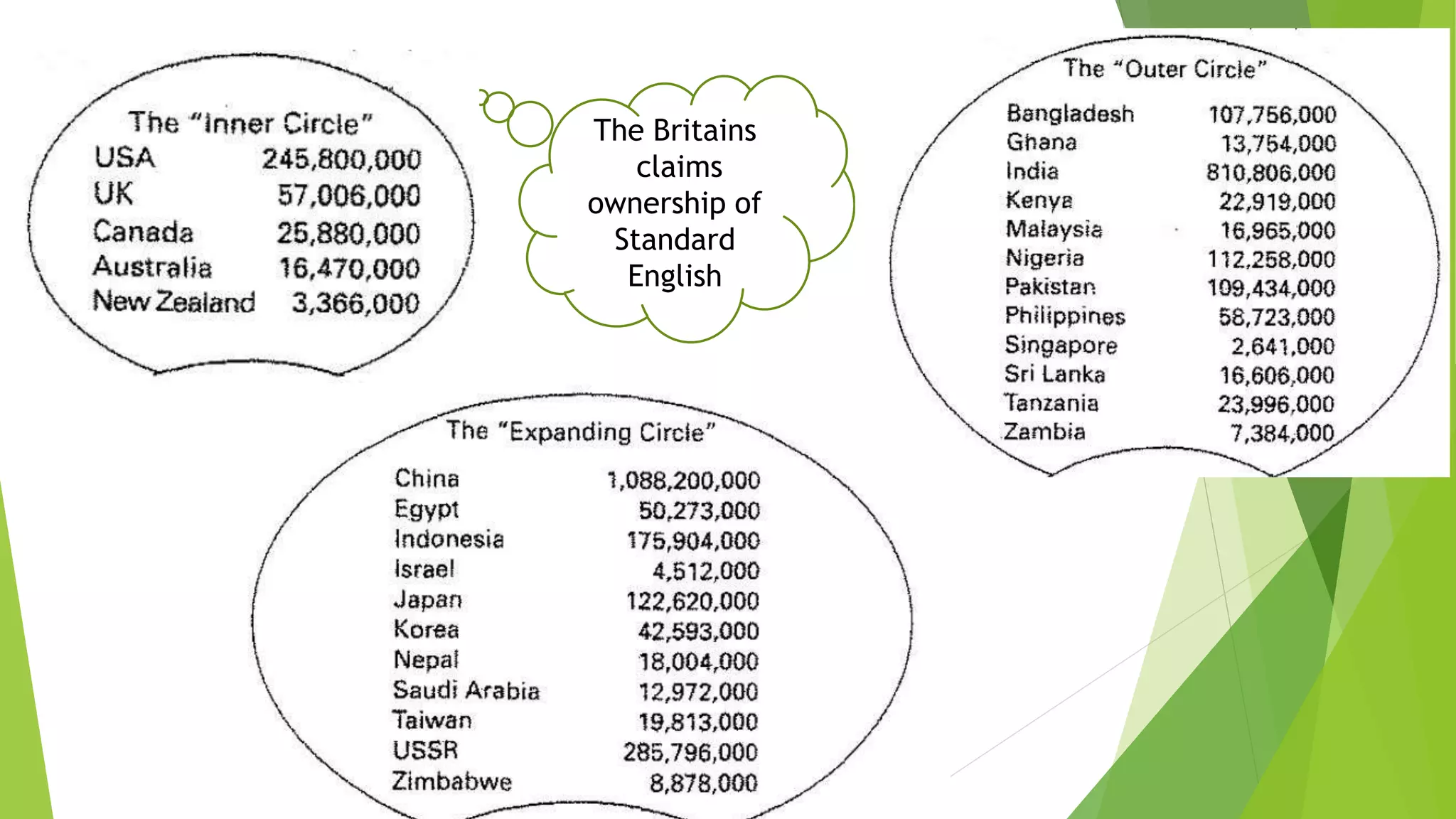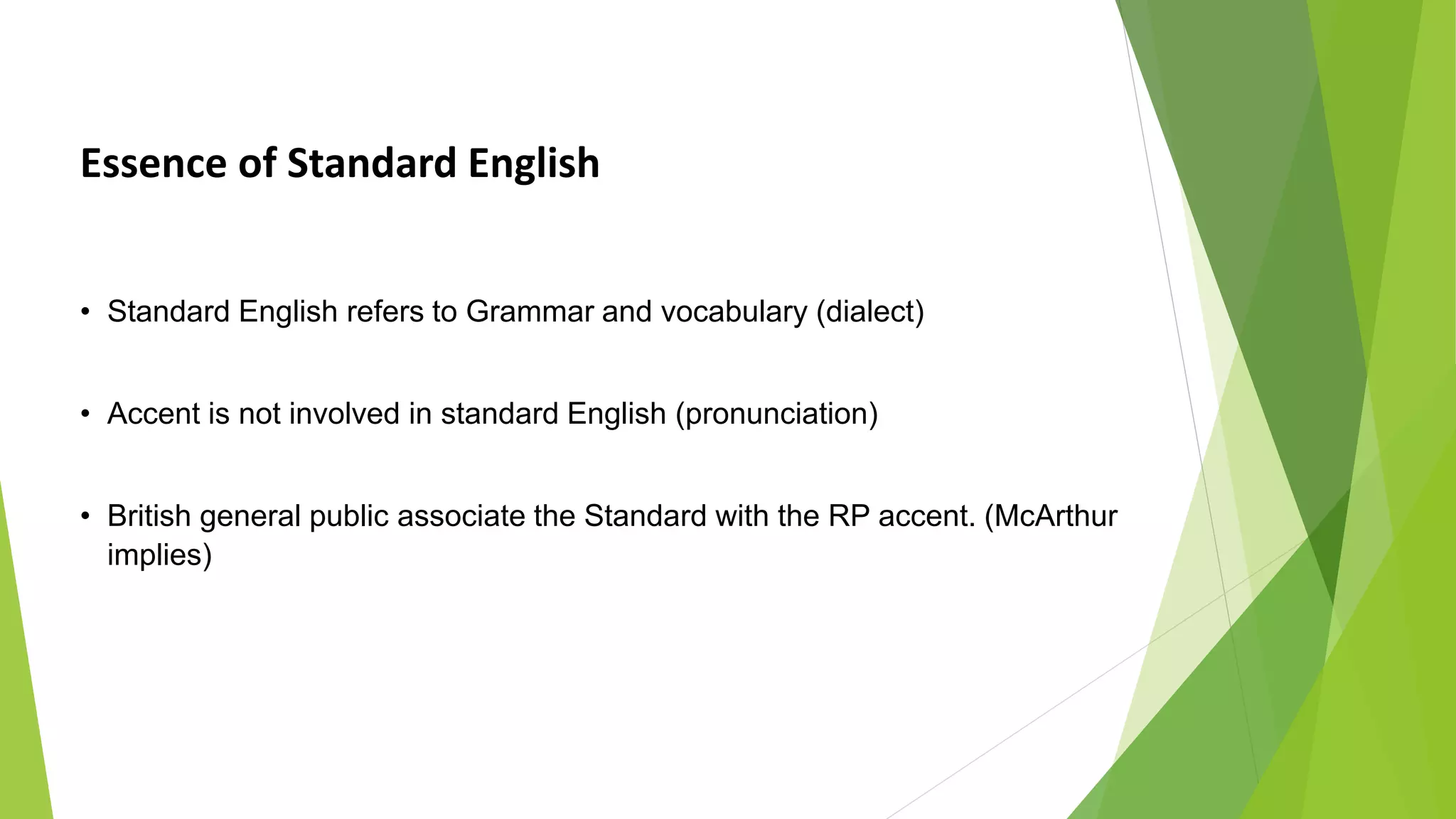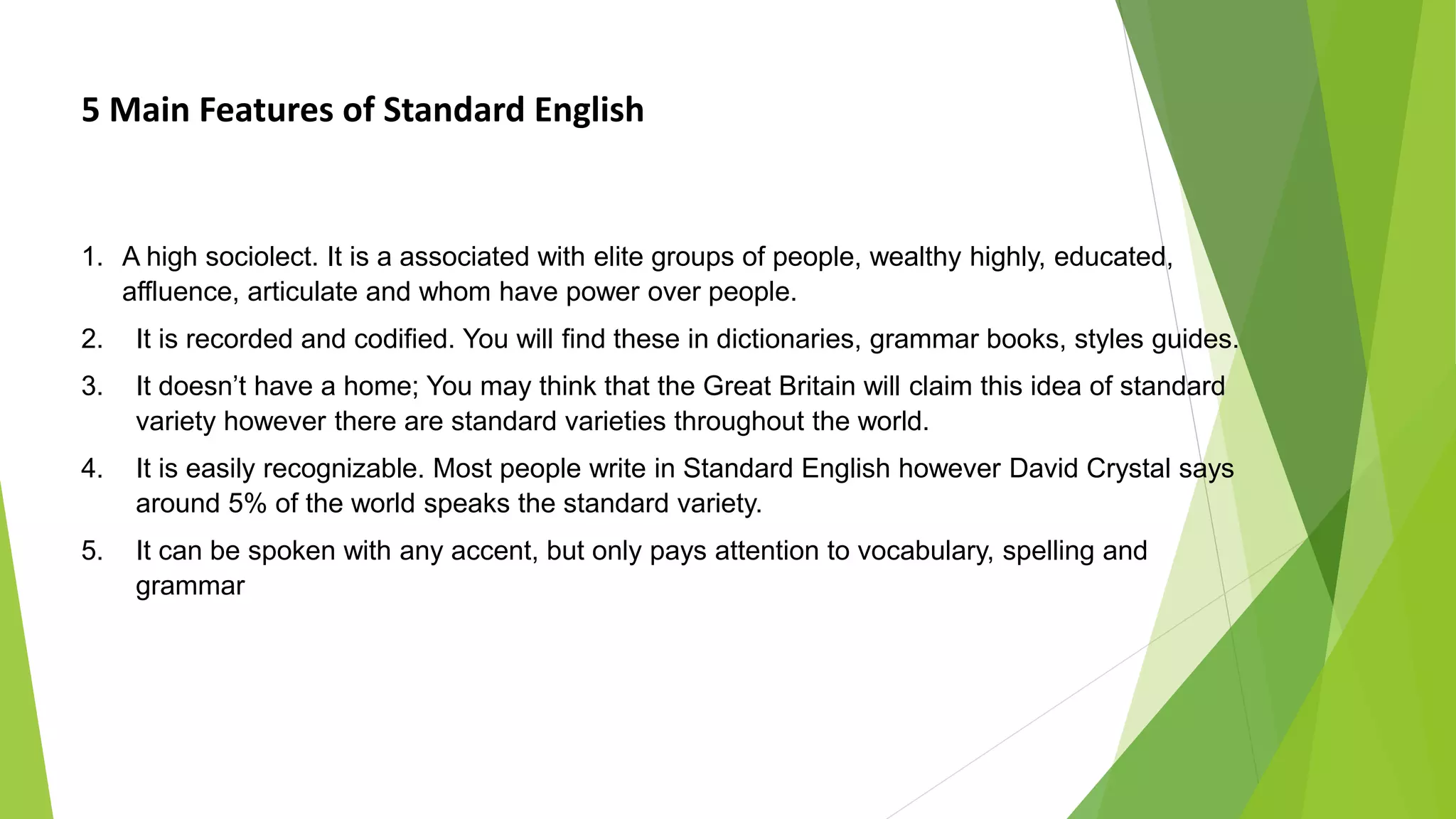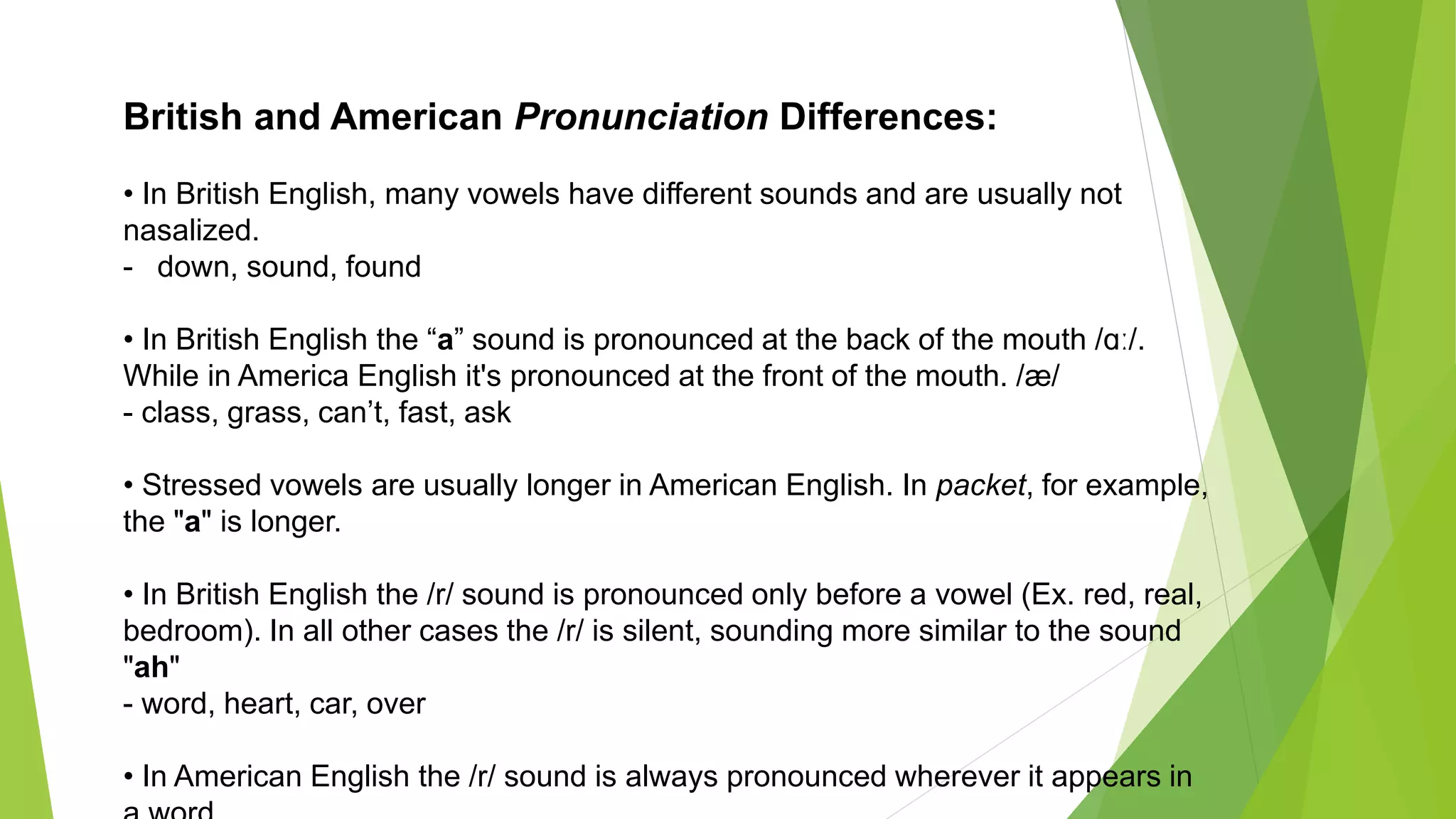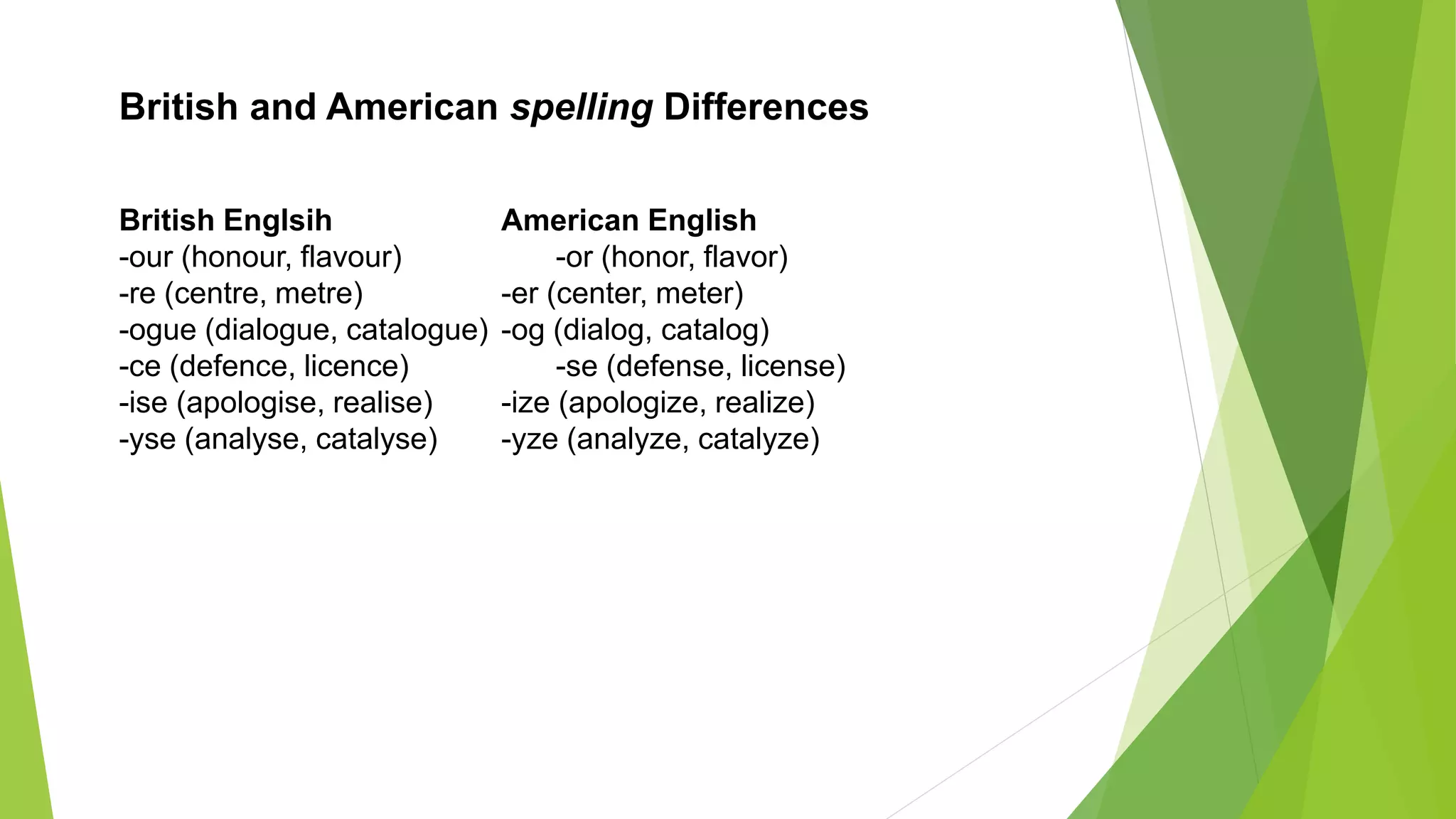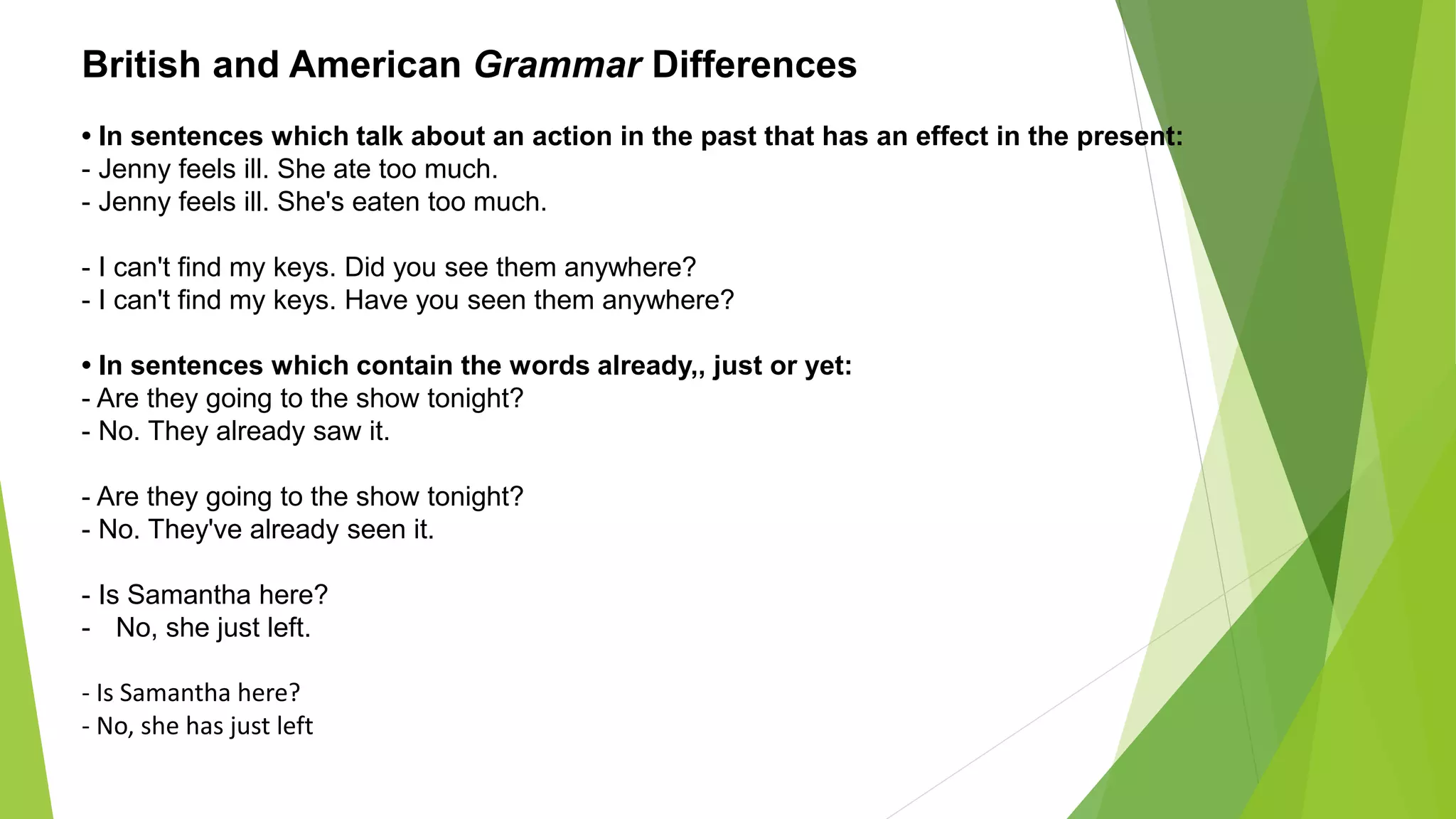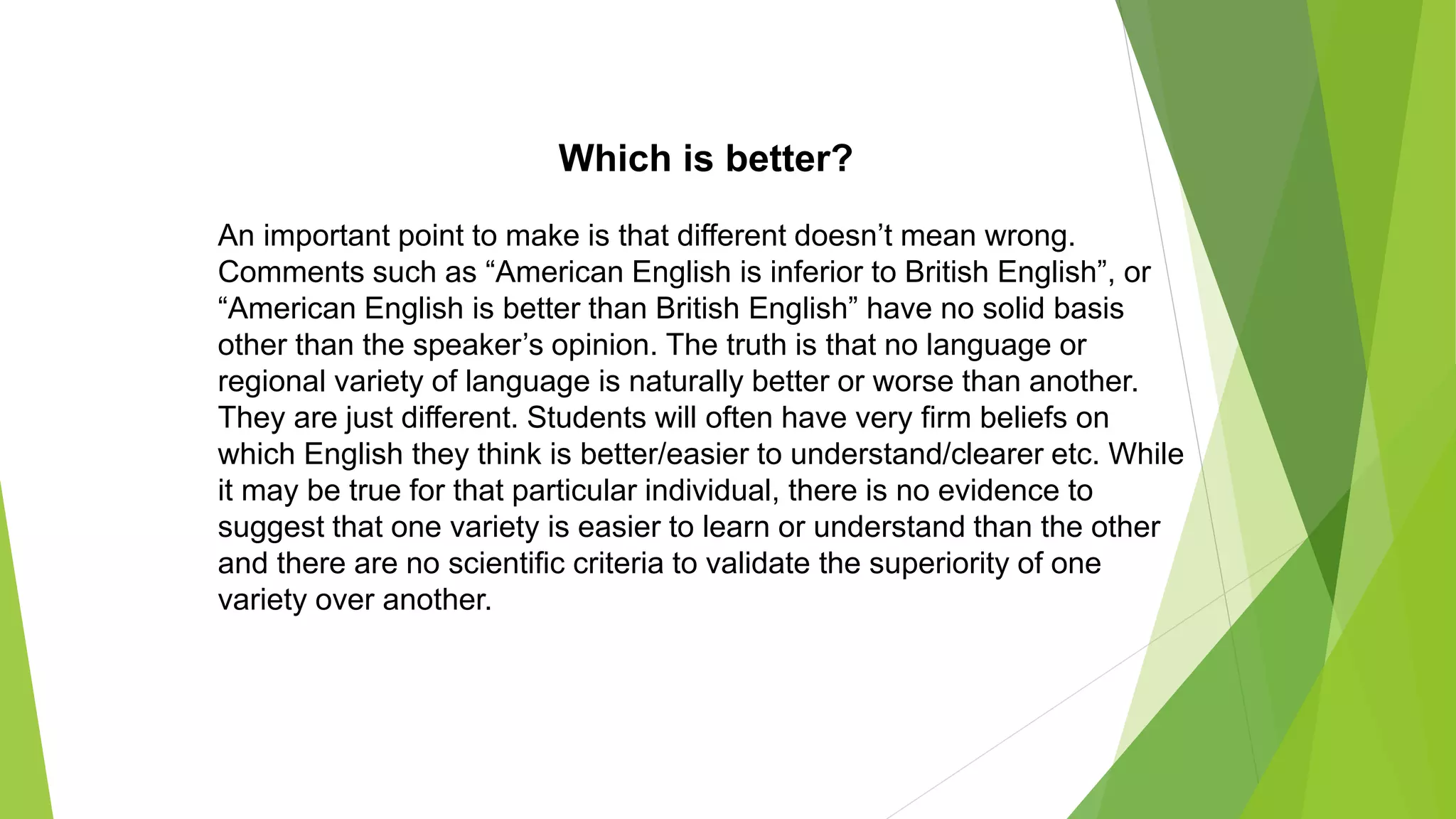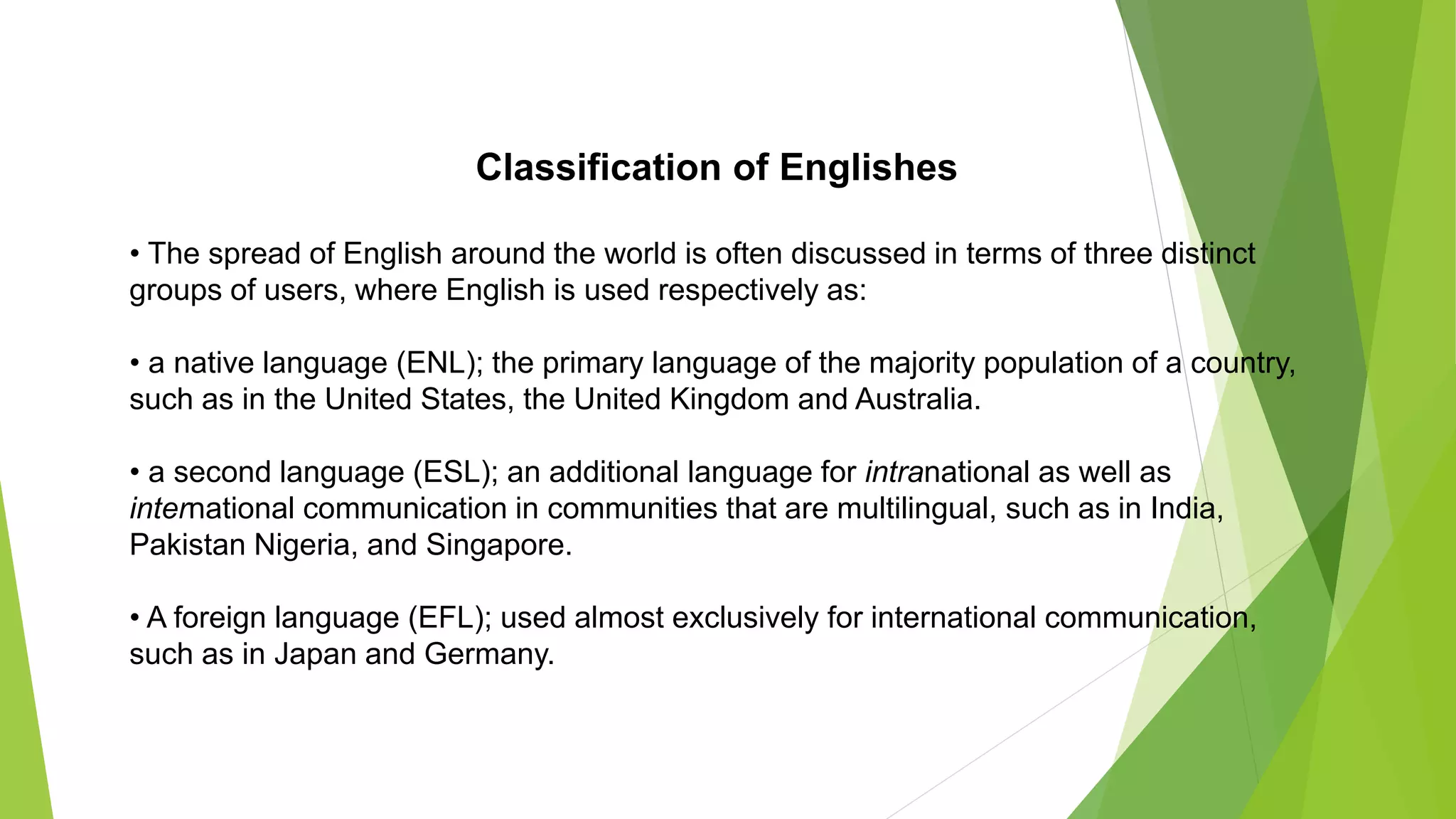The document discusses the concept of Standard English, its characteristics, and the distinctions between Standard and non-standard English, particularly focusing on British and American English differences. It highlights how Standard English is defined as a dialect used by educated speakers, emphasizing grammar and vocabulary without considering pronunciation. Additionally, the emergence of World Englishes and the various roles English plays globally are explored, underlining the diversity and sociolinguistic contexts surrounding the language.


